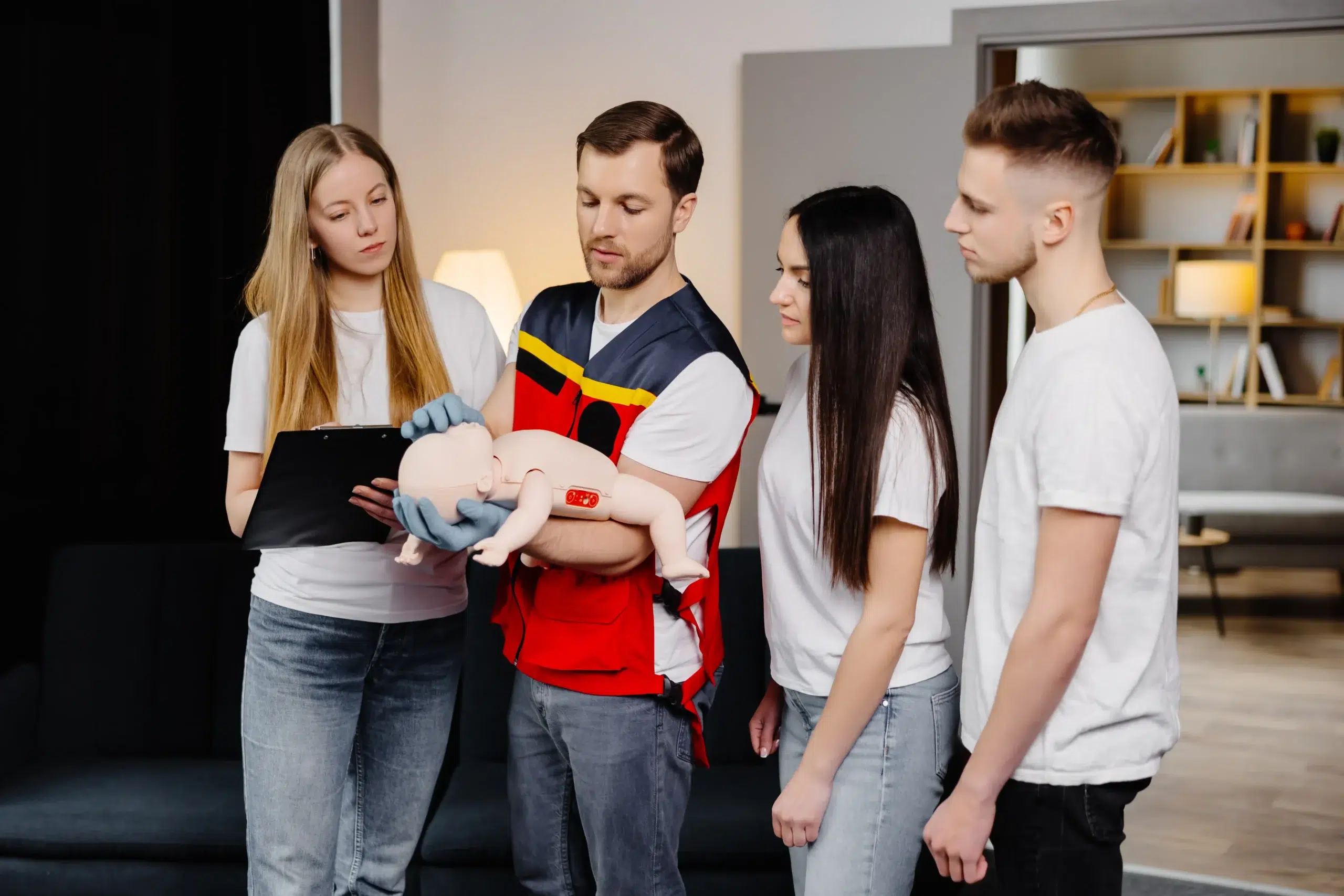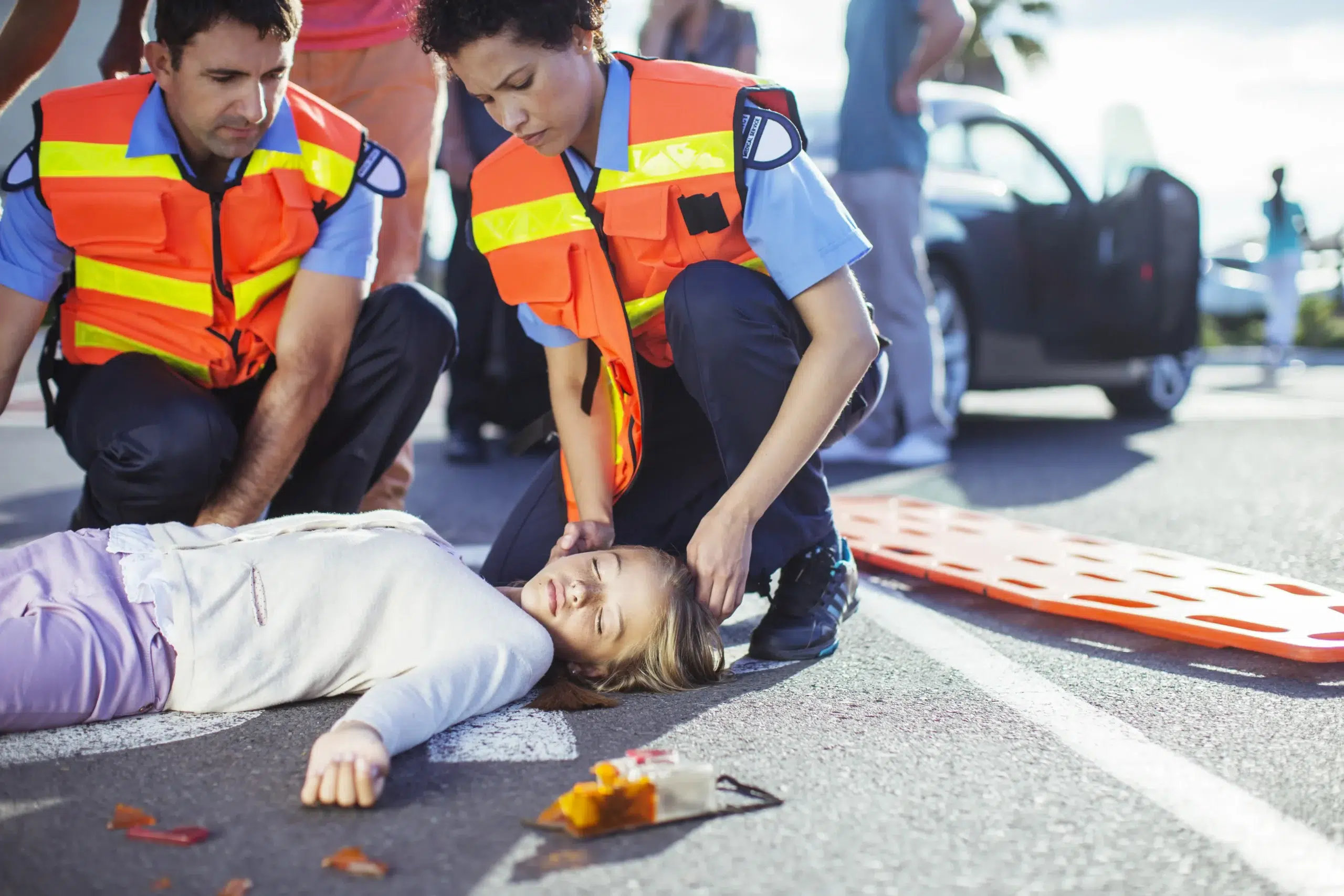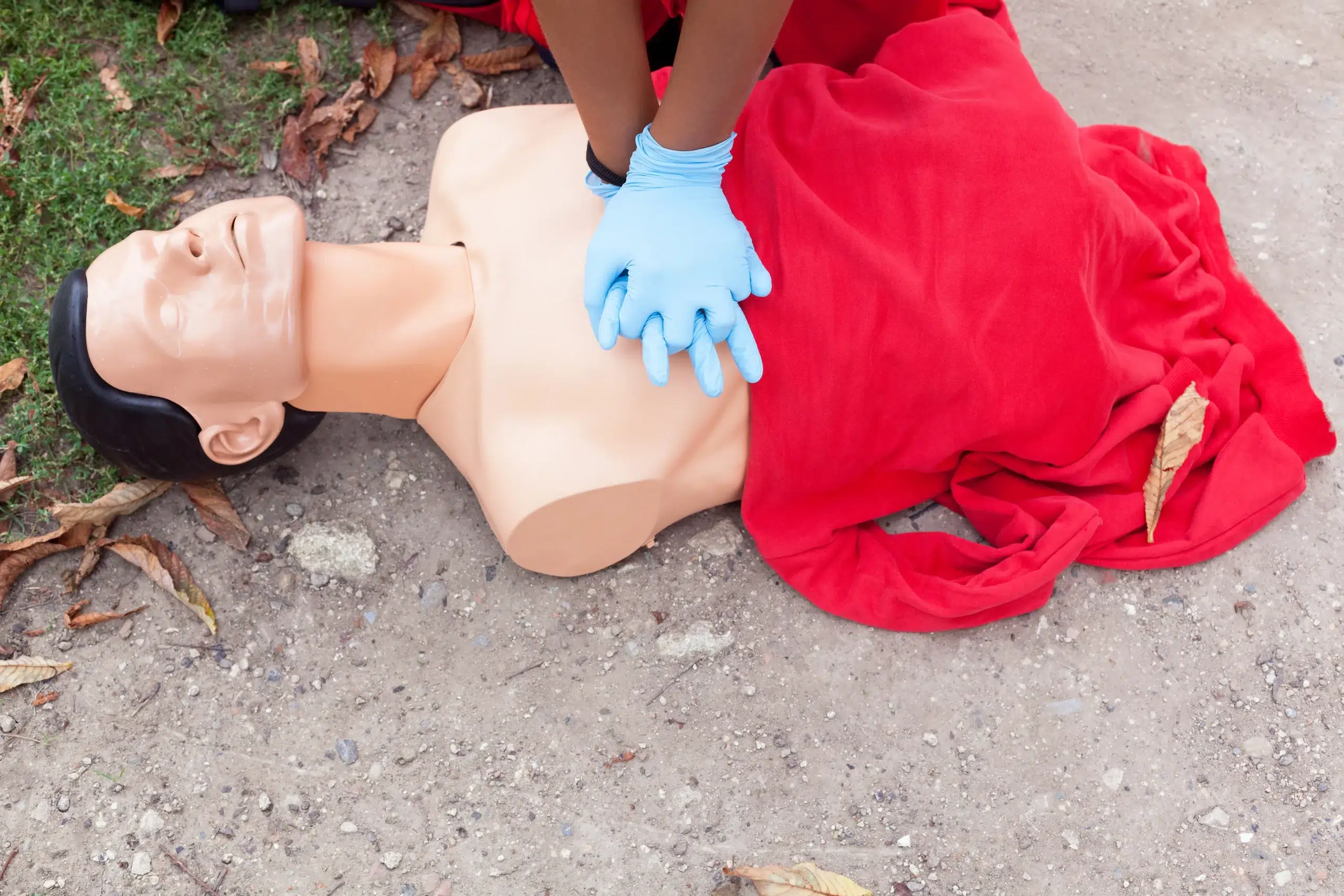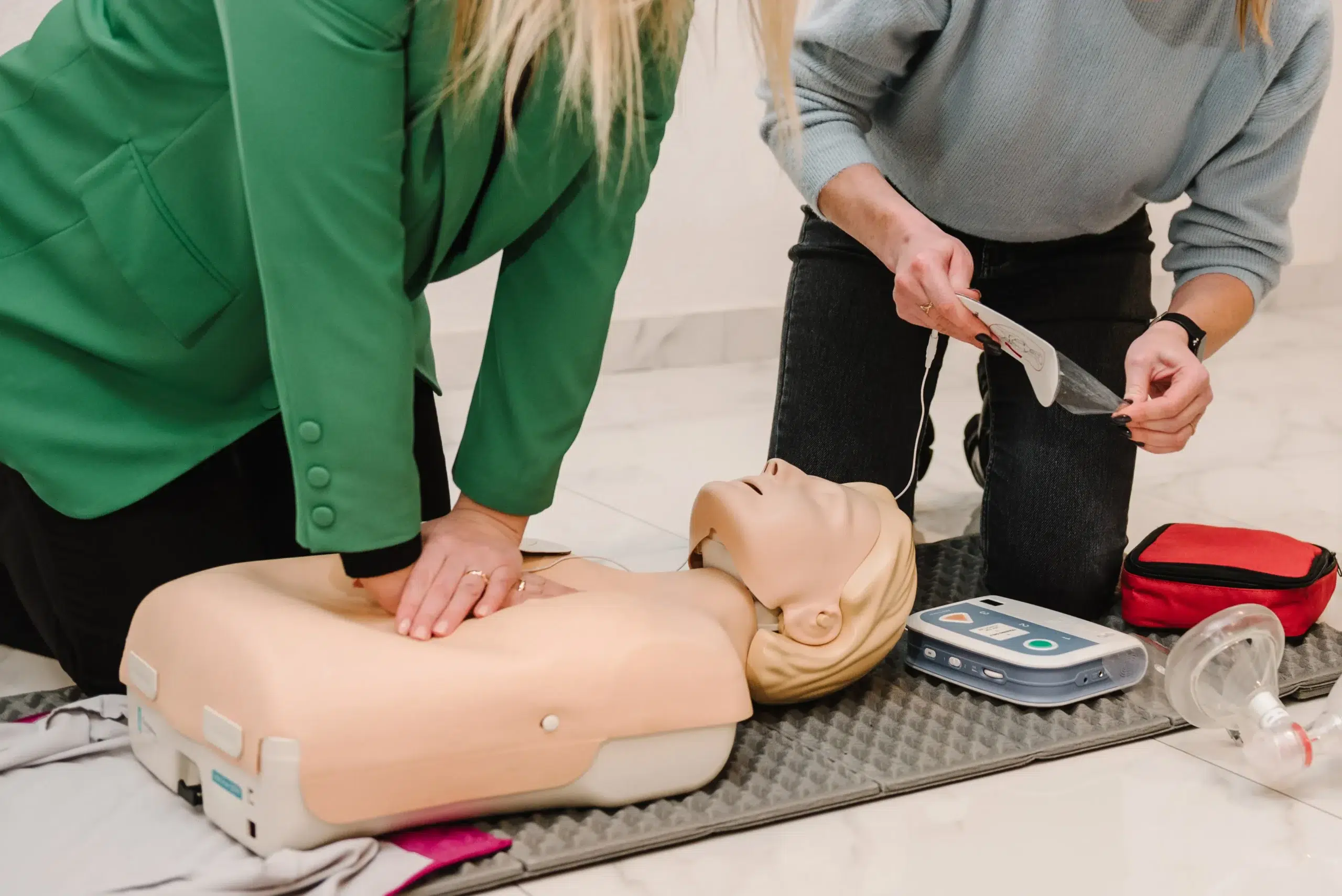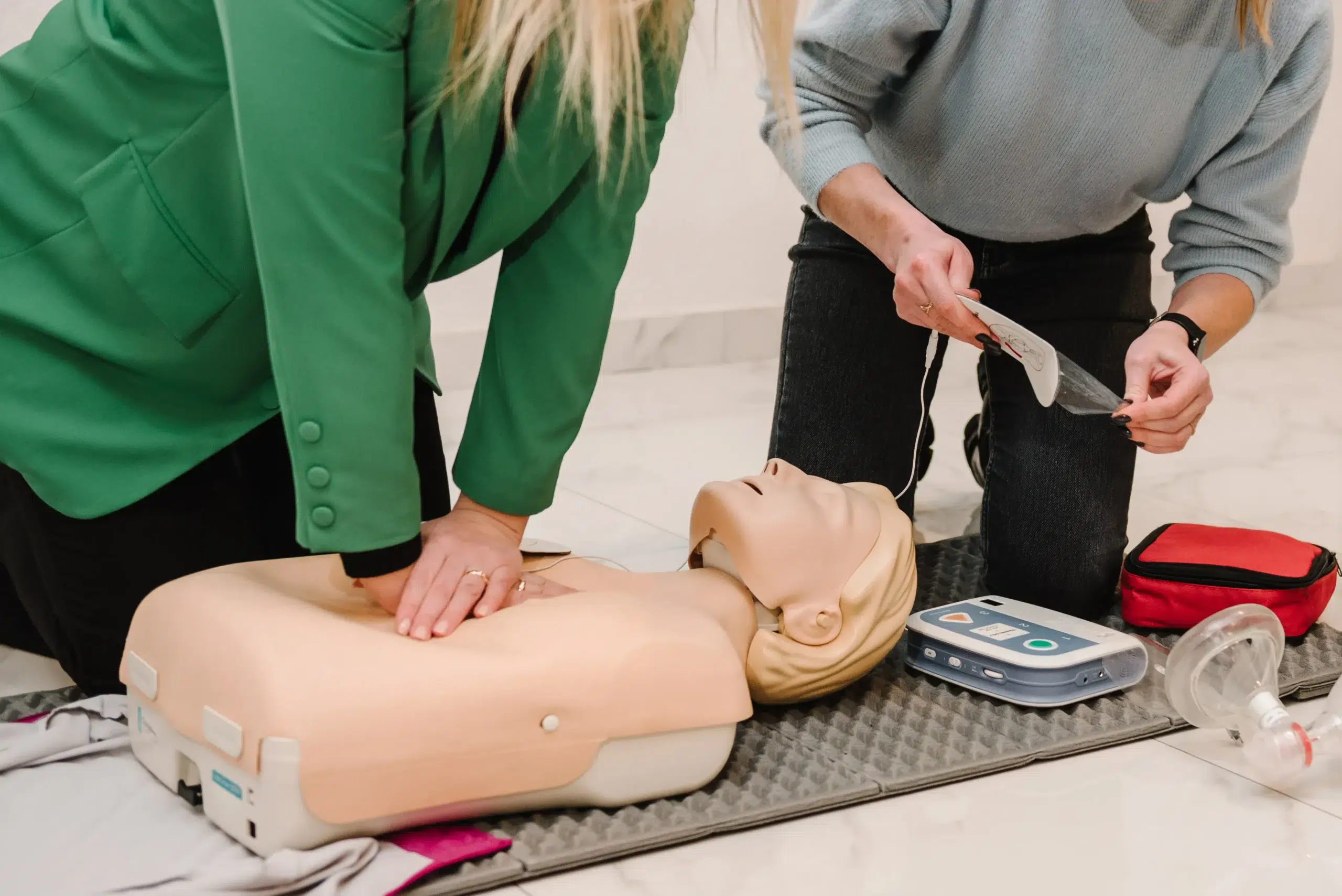Working in healthcare means constantly learning and adapting, and keeping your BLS certification current is a big part of that. But who has time to wade through endless websites and confusing information? If you’re searching for “BLS recertification near me,” you’re in the right place. This guide is your one-stop shop for all things BLS recertification. We’ll cover the importance of BLS, the difference between initial certification and recertification, and how to find the perfect course for your needs, whether online or in-person. We’ll also discuss cost, prerequisites, and common misconceptions to help you navigate the process with ease. Let’s get started so you can confidently check “BLS recertification” off your to-do list.
Key Takeaways
- BLS recertification keeps your skills sharp: Regularly refreshing your training ensures you’re prepared to handle emergencies confidently and provide high-quality patient care.
- Finding a course that fits your needs is simple: Explore various options, including online and in-person classes, to find a provider and format that works for you. Consider AHA-approved providers like Citrus Heights CPR Classes.
- Maintaining your certification is an ongoing process: Stay up-to-date with the latest guidelines and best practices through continuing education and regular practice. This commitment benefits you professionally and strengthens the overall standard of care.
What is BLS Recertification?
BLS recertification is a refresher course for healthcare professionals who need to renew their Basic Life Support (BLS) certification. It covers core life-saving skills like CPR, recognizing and responding to life-threatening emergencies, using an AED, and relieving choking. Keeping your BLS certification current is essential for providing safe and effective patient care and demonstrates a commitment to maintaining a high standard of care.
Definition and Importance
BLS certification is a vital credential for many healthcare roles, showing you have the knowledge and skills to respond effectively in critical situations. BLS recertification reinforces this commitment and ensures you’re equipped to handle emergencies confidently. This ongoing training benefits not only individual healthcare providers but also the wider community by contributing to a consistent standard of care across the healthcare system. Regularly refreshing these skills strengthens the chain of survival for those experiencing cardiac arrest or other medical emergencies.
Initial Certification vs. Recertification
The primary difference between initial BLS certification and BLS recertification is the assumed level of experience. Initial certification introduces these life-saving skills, while recertification builds upon existing knowledge for those already holding a valid BLS card. Recertification courses typically streamline the material, focusing on key updates and essential skills practice, allowing experienced providers to efficiently refresh their skills and maintain their certification. To renew your BLS certification, you’ll typically enroll in a recertification course, complete any required online modules, and pass a certification exam.
Find BLS Recertification Courses Near You
Your BLS certification is about to expire, and you’re searching for “BLS recertification near me.” You want a course that fits your schedule, meets your budget, and provides high-quality training. Finding the right BLS recertification course can feel overwhelming, but with a little guidance, you can easily locate a provider that checks all the boxes.
Search Online
Many organizations offer online BLS recertification courses, providing flexibility and convenience. A quick online search will reveal numerous options, but make sure to filter your results by location if you prefer in-person training. Online BLS recertification is a great option for busy professionals or those who prefer to learn at their own pace.
Locate Local Training Centers
While online learning offers flexibility, in-person BLS recertification provides valuable hands-on learning. Search for local training centers in your area that offer BLS recertification classes. Check with hospitals, community colleges, and dedicated CPR training providers like Citrus Heights CPR Classes. Many organizations, like ACLS Medical Training, offer a blend of online and in-person options to cater to different learning styles.
AHA-Approved Providers
The American Heart Association (AHA) is a trusted authority on CPR and BLS training. Look for AHA-approved providers in your area or online. The AHA website offers resources to help you find certified training centers and instructors. Choosing an AHA-approved provider ensures your recertification meets the highest standards. Citrus Heights CPR Classes is one such provider offering a variety of AHA-certified courses.
Top BLS Recertification Providers
Several reputable organizations offer high-quality BLS recertification courses. Here are a few to consider:
Citrus Heights CPR Classes
Citrus Heights CPR Classes offers a range of AHA-certified courses, including BLS recertification, in a convenient and accessible format. They focus on providing practical skills and knowledge to help you confidently respond to emergencies. They also offer group discounts, making it a cost-effective choice for businesses.
American Red Cross
The American Red Cross is a well-known provider of BLS training and recertification. With options for online and in-person classes, they offer flexibility and accessibility for those seeking renewal. Visit their website to explore course options and schedules.
National CPR Foundation
The National CPR Foundation provides affordable online BLS recertification. Their streamlined course allows you to renew your certification quickly and efficiently. Check out their BLS renewal page for more information on pricing and course content.
ProCPR
ProCPR offers a variety of online courses for BLS recertification, allowing users to complete their training at their own pace, which is ideal for busy professionals. They provide comprehensive materials and resources to support your learning. Explore their online courses to find the right fit for your needs.
Course Formats: What to Expect
Online vs. In-Person
When your BLS certification is about to expire, finding a recertification course that works with your schedule and budget is key. Luckily, you have options. Online BLS recertification courses offer flexibility, allowing you to study and take practice tests when it’s convenient. This format is great for busy schedules or those who prefer learning from home. In-person classes provide hands-on training and direct interaction with instructors, which can be helpful for those who learn best in a traditional classroom. Citrus Heights CPR Classes offers both online and in-person options, so you can choose the format that best suits your learning style. If you’re searching for “BLS recertification near me,” think about whether the convenience of online learning or the in-person experience is a better fit.
Course Duration and Topics
BLS recertification courses are refresher courses designed for healthcare professionals who need to renew their credentials. These courses cover essential topics like adult, child, and infant CPR, AED use, and relief of choking. You’ll also review the latest BLS guidelines to ensure you’re up-to-date on any changes. The duration of these courses varies, but most can be completed within a few hours, whether online or in-person. Online recertification often involves completing online modules and a certification exam, while in-person courses typically include hands-on skills practice and assessment. Check with your chosen provider, like Citrus Heights CPR Classes, for specific course details.
Assessments and Skills Evaluation
Both online and in-person BLS recertification courses involve assessments to confirm you’ve grasped the material and can perform the necessary skills. Online courses often include practice tests and quizzes throughout the modules, leading up to a final online exam. In-person courses typically involve a skills check, where you’ll demonstrate your CPR technique and AED use to an instructor. Remember, if your recertification requires an in-person skills check, schedule it promptly to avoid missing your recertification deadline. Providers like ACLS offer resources and support to help you successfully complete your BLS recertification.
BLS Recertification: Cost and Prerequisites
Renewing your Basic Life Support (BLS) certification is essential for staying up-to-date with the latest life-saving techniques. But between busy schedules and navigating the process, finding the right course can feel like a challenge. This section breaks down the cost and prerequisites of BLS recertification to help you prepare.
Average Price and Cost Factors
One of the first questions people ask is, “How much does BLS recertification cost?” The price varies depending on several factors, including your location, the training provider, and whether you choose an online or in-person course. Expect costs to range, but check with your chosen provider for their specific pricing. Remember that maintaining your certification is an investment in your skills and ability to respond effectively in emergencies. Staying current with evolving guidelines and procedures, as highlighted by Mysterious Hub, also influences overall cost.
Group Discounts and Offers
If you’re recertifying with a group, such as coworkers or a community organization, explore group discounts. Many providers, like ACLS National and Health Ed Solutions, offer reduced rates for group orders. This can be a great way to save money while learning alongside others. Citrus Heights CPR Classes offers group discounts to make training more accessible. Contact providers directly to inquire about group discounts and coordinate training for your team.
Recertification Eligibility
Before signing up for a BLS recertification course, ensure you meet the eligibility requirements. Generally, you’ll need a current BLS Provider card from an accredited organization like the American Heart Association (AHA). Some providers offer blended learning options with online modules and in-person skills sessions. Make sure your current certification hasn’t expired. If it has, you might need to take the full BLS course again rather than a recertification course. Contact Citrus Heights CPR Classes to confirm your eligibility and discuss the best path forward.
Choose the Right BLS Recertification Provider
Picking the right BLS recertification provider is key to a smooth and valuable learning experience. It’s more than just checking a box; it’s about ensuring you’re truly prepared for emergencies. Here’s what to consider:
Evaluate Provider Reputation and Accreditation
Start by researching the provider’s reputation. Look for providers accredited by a nationally recognized organization like the American Heart Association (AHA). Client testimonials and reviews offer valuable insights into others’ experiences. A provider with a solid reputation, like Citrus Heights CPR Classes, is more likely to offer high-quality instruction and adhere to the latest BLS guidelines. Citrus Heights CPR Classes is proud to offer AHA-certified BLS courses. Don’t hesitate to ask about a provider’s accreditation and what it means for your certification.
Instructor Qualifications
Experienced and knowledgeable instructors make all the difference. Inquire about the instructors’ qualifications, certifications, and experience level. Ideally, they should have extensive real-world experience and a passion for teaching. A good instructor can answer your questions thoroughly and provide helpful guidance. Also, consider whether the provider offers additional training or specialized courses beyond basic BLS recertification. This can be a valuable asset for career advancement.
Course Content Quality
Up-to-date, comprehensive course content is essential. BLS guidelines can change, so ensure the course materials reflect the latest updates and best practices. Ask about the course materials, including textbooks, online resources, and hands-on practice equipment. High-quality materials and ample practice opportunities will help you master the skills confidently. Also, confirm the length of the certification. A standard BLS provider card is typically valid for two years, like the one offered through ACLS Medical Training. Knowing this upfront helps you plan for your next renewal.
BLS Recertification: Common Misconceptions
It’s easy to get confused about BLS recertification, especially with so much information online. Let’s clear up some common misconceptions.
Recertification vs. Initial Certification
One myth is that BLS certification is only for healthcare professionals. The truth is, whether you’re a medical student, teacher, or parent, BLS training equips everyone with life-saving skills. Initial BLS certification teaches these fundamental skills, while recertification ensures those skills stay sharp. Think of it as a refresher course—it reinforces your knowledge and updates you on any changes in guidelines. Anyone can benefit from having these skills.
Online BLS Certification Legitimacy
Another misconception is that online BLS certification isn’t as good as in-person training. Many accredited online courses meet the same standards as traditional classes and are recognized by employers. Online recertification offers flexibility, allowing you to renew your credentials from anywhere, at your own pace. Just make sure the program you choose is from an AHA-approved provider like Citrus Heights CPR Classes.
BLS Renewal Timing
Many people believe BLS certification is a one-time thing. Actually, BLS certification needs to be renewed every two years. This keeps your skills and knowledge current, so you can respond effectively in a crisis. Staying up-to-date with the latest guidelines is crucial for providing the best possible care, no matter your profession.
BLS Recertification Costs
Some people think BLS recertification is too expensive. But consider the value of having these skills—they can make a real difference. Group discounts and other offers can make recertification more affordable. Check with your employer or local training centers like Citrus Heights CPR Classes for potential cost savings. We also offer a low price guarantee, so you can find a course that fits your budget. If you have questions, reach out—we’re happy to help!
Maintain Your BLS Certification
Keeping your BLS skills sharp is crucial for any healthcare provider. It’s not just about checking a box; it’s about ensuring you’re prepared to provide high-quality care when it matters most. Here’s how to stay on top of your BLS certification:
Renewal Process
BLS certification, like many healthcare certifications, isn’t a one-and-done deal. It requires periodic renewal to ensure your knowledge and skills are current. Generally, BLS certification is valid for two years. To renew, you’ll need to enroll in a BLS recertification course, complete any required online modules, and pass the certification exam. This process ensures you’re familiar with the latest guidelines and best practices in basic life support. Don’t wait until the last minute; plan and schedule your recertification course in advance to avoid any lapses in your certification. Forgetting to schedule your in-person skills check can also cause delays, so mark your calendar and plan ahead.
Continuing Education
Even after you’ve renewed your certification, ongoing learning is essential. The medical field is constantly evolving, and staying informed about the latest advancements can significantly impact patient outcomes. Take advantage of continuing education opportunities, such as workshops, online resources, and conferences, to deepen your understanding of BLS and related topics. Regularly reviewing course materials is also a good practice, as BLS guidelines can change. This commitment to continuous learning not only benefits you professionally but also contributes to a higher standard of care within your community. One of the biggest challenges in maintaining your BLS certification is keeping up with these changes, so make a commitment to lifelong learning.
Practice Regularly
Knowledge without practice is like a car without gas. Regularly practicing your BLS skills is paramount to maintaining proficiency. Consider participating in mock codes or drills at your workplace to simulate real-life scenarios. You can also refresh your skills by reviewing online tutorials or practicing with a colleague. Consistent practice helps solidify your knowledge, improves your response time in emergencies, and builds your confidence in applying BLS techniques effectively. Remember, regular practice is the key to transforming knowledge into action and ensuring you’re always ready to respond.
Related Articles
- BLS for Healthcare Providers in Sacramento: A Complete Guide – Citrus Heights CPR Classes
- BLS Certification in Sacramento: Your Comprehensive Guide – Citrus Heights CPR Classes
- BLS Classes in Sacramento: A Complete Guide
- Online BLS Classes in Orangevale: Your Complete Guide – Citrus Heights CPR Classes
- HeartCode BLS Citrus Heights: Your Certification Guide – Citrus Heights CPR Classes
Frequently Asked Questions
How often do I need to renew my BLS certification? BLS certification typically expires every two years. It’s a good idea to check your card and schedule your recertification course a few months in advance. This prevents any lapse in your certification and ensures you’re always prepared to respond to emergencies.
What’s the difference between BLS certification and recertification? Initial BLS certification teaches the fundamental life-saving skills, while recertification is a refresher course for those who already hold a valid BLS card. Recertification courses cover essential updates and provide a chance to practice your skills, ensuring you’re up-to-date and ready to respond effectively.
Can I renew my BLS certification online? Yes, many accredited organizations offer online BLS recertification courses. These courses provide flexibility and convenience, allowing you to learn at your own pace and from anywhere with an internet connection. Just be sure to choose a program from an AHA-approved provider to ensure your certification is valid and meets the required standards. Some online programs may also require an in-person skills check.
Where can I find BLS recertification courses near me? You can find BLS recertification courses through various providers, including hospitals, community colleges, and dedicated CPR training centers like Citrus Heights CPR Classes. Searching online for “BLS recertification near me” is a great starting point. The American Heart Association website also offers resources to locate certified training centers in your area.
How much does BLS recertification cost? The cost of BLS recertification varies depending on the training provider, your location, and whether you choose an online or in-person course. Many providers offer group discounts, so if you’re renewing with colleagues, be sure to ask about potential cost savings. Contacting providers directly is the best way to get accurate pricing information.


